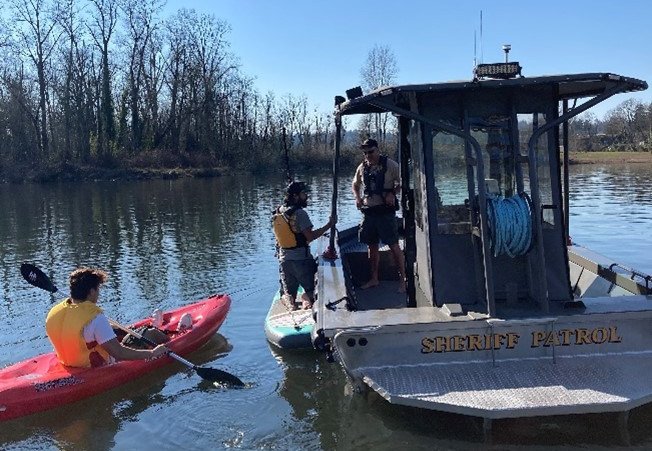Boating season is back: To stay safe, plan, pay attention, share

SALEM, Ore. (KTVZ) -- There are dozens of boat types on the market and many water recreation opportunities in Oregon, from rivers and streams to the Pacific Ocean. Regardless of the type of boat you’re in and the type of activity you’re engaged in, be sure to plan, pay attention, and share the water so everyone can have a fun time.
The Oregon State Marine Board invites boaters to explore their interactive Boating Oregon Map, where you can find a boat ramp near you, plan for a weekend escape to places less frequented, or find a waterway in the center of all the action.
“When you hit the water, remember -- it’s water. There will be waves, there will be wind chop, there will be other boaters, and lots of opportunities to build your skills,” says Ashley Massey, public information officer for the Marine Board. “It’s important to pick a location based on your skills, and consider exploring a new waterbody or have a backup location if the primary option is too crowded. There are dozens of waterways perfectly suited for paddling and just as many nonmotorized and “electric motor only” lakes for folks looking for a serene, relaxing and peaceful excursion,” Massey says.
Massey also advises to check the weather forecast, water levels or tides, see if there are any reported obstructions, and to have the right gear for the activities you’re doing.” Boaters can also find out what equipment is required based on their boat length.
“Expect waterways in more populated areas to be congested with many users, so pay attention to your surroundings, continually scanning port to starboard and keeping a close eye on what’s ahead,” Massey adds. “Brush up on the navigation rules of the road, start out slow looking for debris in the water, and whatever you do –don’t text and drive. Taking video and pictures, along with social media texting can be fun, but the operator needs to maintain focus and awareness to what’s going on around them. The captain is responsible for the safety of everyone on board, and the entire crew needs to pitch in and be an alert, working together.”
Play it Safe. The Marine Board also recommends boaters:
- Wear a life jacket. Learn more about life jacket types, styles, and legal requirements. Life jacket use is required for children under 13 when in a boat underway, and for anyone rafting on sections of rivers with Class III whitewater. The water temperature for most waterways is below 60 degrees this time of year and wearing a life jacket is the most important piece of equipment for surviving the first few seconds of cold-water immersion.
- Not consuming marijuana, drugs, or alcohol. Instead, take along a variety of non-alcoholic beverages and plenty of water. Impairment can lead to a BUII arrest. Drugs and alcohol impair a boater’s judgment and coordination which every boat operator needs. Swift currents, changing weather and debris require boat operators to be focused and skilled to avoid an accident.
- If you are feeling tired, take a break on land and return to the water when you are re-energized and alert. Wind, glare, dehydration, and wave motion are environmental stressors and contribute to fatigue which can slow reaction time.
- Never boat alone –especially when paddling. Always let others know where you are going and when you’ll return. Print out a downloadable float plan to leave with friends and family.
- Be courteous to other boaters and share the waterway. Low water levels in many areas of the state will lead to boaters migrating where there’s more water to play. Expect congestion at the boat ramp and bring your patience. Once on the water, paddlers are urged to operate near the shore, to help ease conflict with motorized boats and sailboats who need deeper water to operate. Paddlers are encouraged to use the shoreline adjacent to the ramp to help ease congestion. Regardless of your boat type, prep your gear in the parking lot or staging area prior to launching your boat. This makes launching faster and everyone around you, happier.
- In Oregon, all boaters must take a boating safety course and carry a boater education card when operating a powerboat greater than 10 horsepower. The Marine Board also offers a free, online paddling courses for boaters new to the activity.
For more information about safe boating in Oregon, visit boat.oregon.gov.